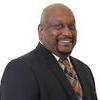History is More Important Than Ever to AUSA
“Those that fail to learn from history are doomed to repeat it.” Winston Churchill
“If you don’t know your history, you can’t learn from it.” Burnett W. “Kwadwo” Gallman, Jr. M.D.
Although the title kinda speaks for itself, it is important to mention the history I refer to is not written by just anyone. There is a group of historians who evaluate and write from the perspective of Afrikan and AUSA people. These AUSA historians I recommend are writing about us as us, and not about us as “the other.”
Some of the early pivotal historians are W.E.B. DuBois, Anna Julia Cooper, Carter G. Woodson and John Henrik Clarke. There were also prominent historians with South Carolina roots who have contributed tremendously to our knowledge about who we truly are (John G. Jackson from Aiken and Chancellor Williams from Bennettsville). These historians, and their associates and students, provide us with an honest look at what has happened to us, how we survived the worst of it and thrived despite it. They also give us a blueprint of what we still can and must do.
By studying history, we can see events in the past that are similar to today and learn what worked and what didn’t work. I’m reminded of an Afrikan proverb that states “Until the tale of the hunt is told by the lion, it will always glorify the hunter.”
A correct analysis of history (what my mother called 20-20 hindsight) can serve as a “warning beacon” and alert us to signs of things that are about to happen. It has often been said that history is cyclical. I once repeated the old saying that history repeats itself but was corrected by my friend, the profound poet Mary C. “M.C.” Short. She said history doesn’t repeat itself, but people repeat history. This wisdom tells us that people who don’t know their history stumble into repetition of the worst of it, when they really don’t have to.
What is happening today with suppression of voting, increasingly open racism, and suppression of the teachings of our history has happened before. A study of the period of Reconstruction (1865-1877) was a period of positive movement for AUSA (Afrikans from the United States of America). We were regaining our humanity and displaying excellence and success in all areas of life (politics, education, economics, culture). This scared, angered and intimidated many whites so the next 77 years (1877-1954) were marked by a backlash of vicious and violent terrorism against AUSA that was actually legal. This was the era of lynching, race massacres (Tulsa, and Black Wall Street were the tips of the iceberg), American apartheid (segregation), sundown towns, redlining, poisoning the environments where we lived and worked, being killed by those who are supposed to “protect and serve,” and other awful treatment. Although in a different form, the cycle appears to be starting again.
Knowledge of our history can give us clues as to what we can do. I am not saying that knowledge of history has all the answers, but it makes the solutions easier to find. If you went into a room where there were several vicious dogs and barely escaped without being mauled, you would not voluntarily go back into that room without being prepared for the dogs. That is called learning from history. Everything old ain’t necessarily old-fashioned and useless.
History can also inform us of who we have been and what we have accomplished. This enables us to realize what our true potential is despite the negative messages we get from the mass media, social media, television, films and even many of our teachers.
History teaches us to question everything. Obviously, we cannot know or learn everything, but we should try to be as knowledgeable as possible before starting to believe the ridiculous and nefarious messages society tries to tell us about ourselves and our Ancestors.
I would submit that many, if not most of us don’t really know who we are. We have been taught to limit our self-perception through the lens of the people who kidnapped, enslaved and oppress us. When someone shows you repeatedly how they feel about you, how can you believe them when they teach you about yourself? Unfortunately, too many of our scholars and public figures have been subconsciously and subliminally rendered anti-AUSA and subsequently, anti-self.
As the Temples in ancient Afrika had written over the doors, “Know Thyself.”
Food for thought!
Please support The Coastal Chronicles by subscribing today!
You may also like:




